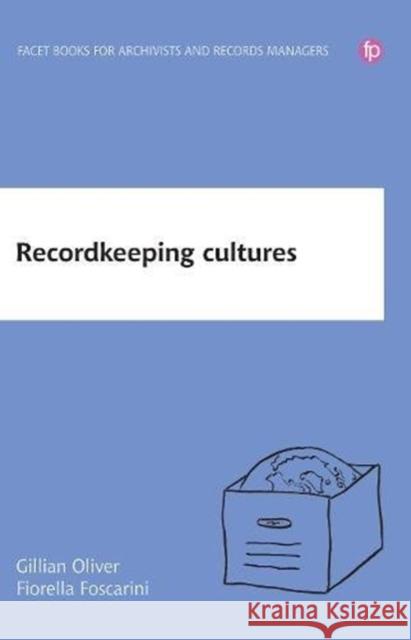Recordkeeping Cultures » książka
Recordkeeping Cultures
ISBN-13: 9781783303991 / Angielski / Miękka / 2020 / 256 str.
Recordkeeping Cultures
ISBN-13: 9781783303991 / Angielski / Miękka / 2020 / 256 str.
(netto: 279,30 VAT: 5%)
Najniższa cena z 30 dni: 289,65
ok. 30 dni roboczych.
Darmowa dostawa!
Recordkeeping Cultures explores how an understanding of organisational information culture provides the insight necessary for the development and promotion of sound recordkeeping practices. The book is a fully revised and expanded new edition of the authors' 2014 book Records Management and Information Culture: Tackling the people problem. It details an innovative framework for analysing and assessing information culture, and indicates how to use this knowledge to change behaviour and develop recordkeeping practices that are aligned with the specific characteristics of any workplace. This framework addresses the widely recognised problem of improving organisation-wide compliance with a records management programme by tackling the different aspects that make up the organisation's information culture. Discussion of topics at each level of the framework includes strategies and guidelines for assessment, followed by suggestions for next steps: appropriate actions and strategies to influence behavioural change. This new edition has been fully revised and update to greatly enhance the practical application of the information culture concept in both formal and informal recordkeeping environments and contains new chapters on: diagnostic features: genres, workarounds and infrastructure workplace collaboration: how to analyse collaborative practices in organisations (including recordkeeping) education: how to teach information culture concepts and methods in archives and records management graduate programmes. Archivists, records managers and information technology specialists will find this an invaluable guide to improving their practice and solving the `people problem' of non-compliance with records management programmes. LIS students taking archives and records management modules will also benefit from the application of theory into practice. Records management and information management educators will find the ideas and approaches discussed in this book useful to add an information culture perspective to their curricula.











